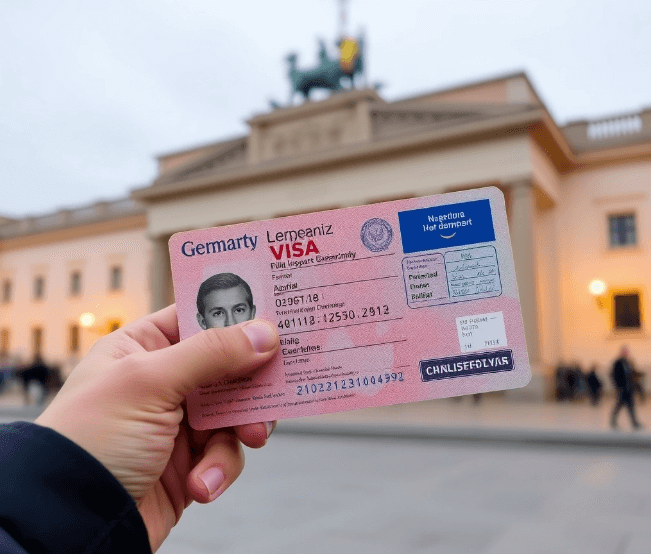If you are a foreign national and want to work in Germany, you will need to apply for a residence permit for work. As you will learn from this post, however, you are not required to have a sponsor to apply for a German visa.
The Gainful Employment Visa is the most prevalent type of visa for professionals with a university degree or vocational qualifications in Germany.
This post summarizes the 2025 Germany Work Visa Process, discussing opportunities and visa options available for foreign applicants.
Why to Work in Germany?
Germany has a plethora of job opportunities, mainly faced with a skilled worker shortage. According to the German Federal Office, in 2021 alone, 304,736 national work visas were issued for employment. Programs such as the Germany Opportunity Card and German Job Seeker Visa introduce more ways for foreign professionals to seek employment in Germany.
Key Visa Types for Working in Germany
1. Gainful Employment in Germany Visa
It grants entry and authorization to work in Germany to foreign nationals, provided they receive a valid job offer from an employer located in that country. Application is possible upon securing employment.
2. Germany Long-Stay Visa
Those who intend to be in Germany for over 90 days for work should apply for a Long-Stay Visa.
Countries Exempt from Long-Stay Work Visas
Citizens of the following groups do not need to apply for a long-stay work visa to work in Germany:
- Citizens from EU, EEA, and EFTA Countries
- Citizens of Australia, Canada, Israel, Japan, New Zealand, South Korea, the UK, and the USA
Some citizens can enter visa-free and subsequently apply for a residence permit after arrival.
Nationals from all other countries need to apply for a visa at the German Consulate or appropriate authority before travelling.
Eligible Professions for a German Work Visa
- Engineers
- IT Specialists
- Scientists
- Doctors
- Teachers
- Lawyers
- Accountants
Visa Costs and Duration
- Application Fee: € 75 for a long-stay visa
- Visa Duration: Valid for one year and renewable. Residency permits are connected to the work contract, and after four years, you may qualify for permanent residency.
Eligibility Criteria
1. You must already have a job offer from an employer in Germany.
2. Qualifications:
- A university degree or vocational qualification.
- Foreign qualifications need to be recognized in Germany through an “equivalence assessment.”
3. Salary Requirements: Check that your offer is above the minimum salary threshold.
How to Apply: Step-by-Step
- Find a Job in Germany: Look for a job in Germany.
- Check Your Qualification is Recognised: Check that your degree or vocational qualification is recognized.
- Gather Documents: Get all the required documents together. Passport, contract of employment, academic qualifications.
- Arrange an Appointment at the Embassy: Make sure to book an appointment at the German embassy.
- Pay the Visa Fee: Submit the €75 application fee.
- Apply for a Visa: Submit your application and wait for approval.
- Travel to Germany: Once approved, move to Germany.
- Obtain a Residence Permit: Apply for a residence permit upon arrival.
Additional Resources
Germany recently enacted new citizenship laws, allowing easier pathways to citizenship for foreign residents. Learn more about the 2023 New German Citizenship Law and how it can benefit long-term residents.
For details on visa-free countries, and to check further possibilities in Germany, refer to the following updated guideline and recent job advertisements.







Leave a Reply